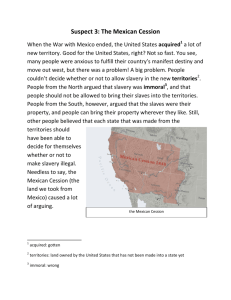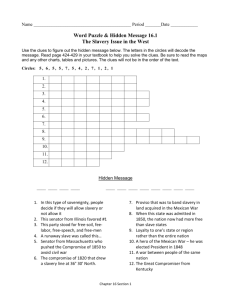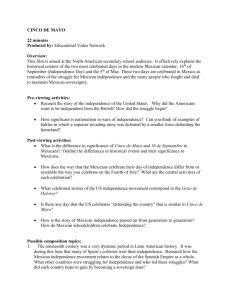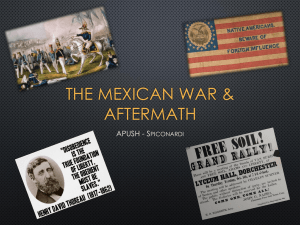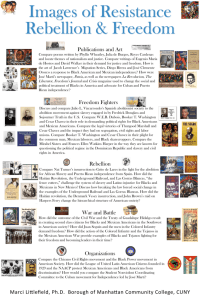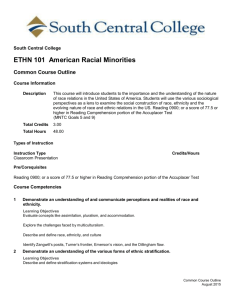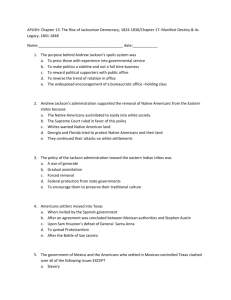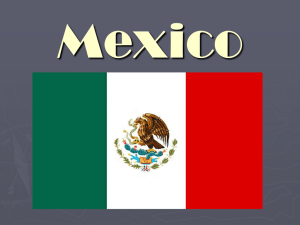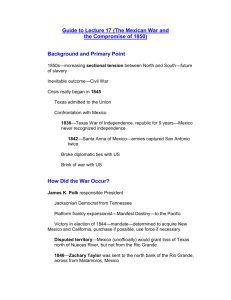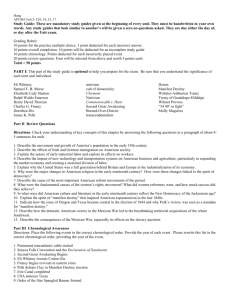Mexican-American War: Anti-War Sentiment Documents
advertisement
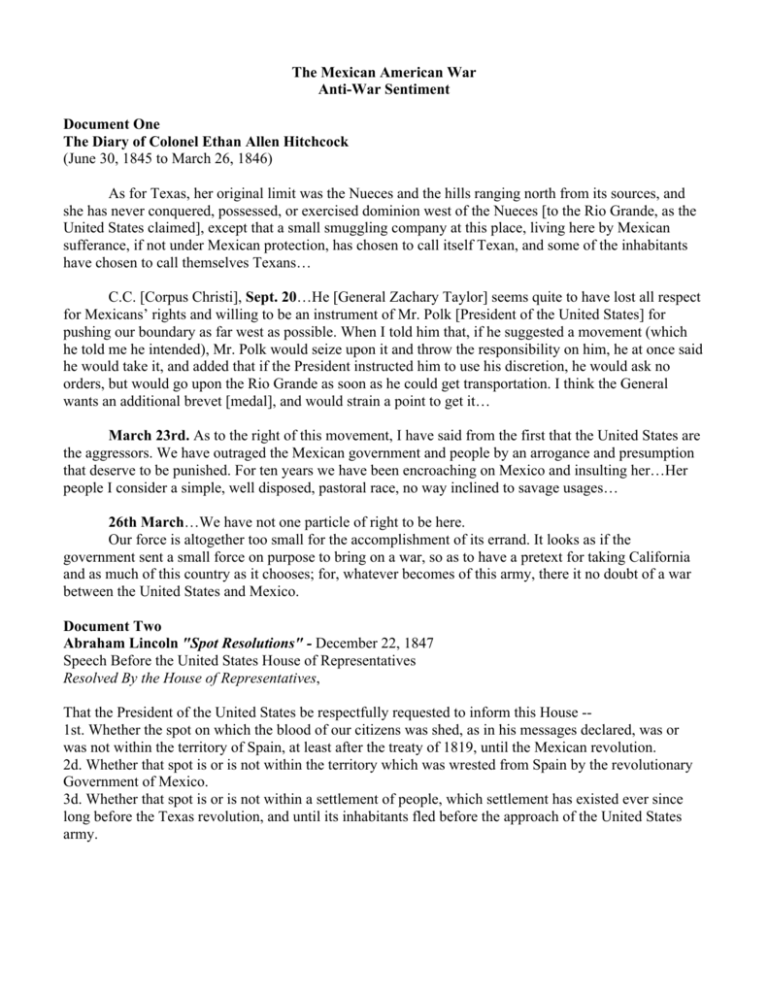
The Mexican American War Anti-War Sentiment Document One The Diary of Colonel Ethan Allen Hitchcock (June 30, 1845 to March 26, 1846) As for Texas, her original limit was the Nueces and the hills ranging north from its sources, and she has never conquered, possessed, or exercised dominion west of the Nueces [to the Rio Grande, as the United States claimed], except that a small smuggling company at this place, living here by Mexican sufferance, if not under Mexican protection, has chosen to call itself Texan, and some of the inhabitants have chosen to call themselves Texans… C.C. [Corpus Christi], Sept. 20…He [General Zachary Taylor] seems quite to have lost all respect for Mexicans’ rights and willing to be an instrument of Mr. Polk [President of the United States] for pushing our boundary as far west as possible. When I told him that, if he suggested a movement (which he told me he intended), Mr. Polk would seize upon it and throw the responsibility on him, he at once said he would take it, and added that if the President instructed him to use his discretion, he would ask no orders, but would go upon the Rio Grande as soon as he could get transportation. I think the General wants an additional brevet [medal], and would strain a point to get it… March 23rd. As to the right of this movement, I have said from the first that the United States are the aggressors. We have outraged the Mexican government and people by an arrogance and presumption that deserve to be punished. For ten years we have been encroaching on Mexico and insulting her…Her people I consider a simple, well disposed, pastoral race, no way inclined to savage usages… 26th March…We have not one particle of right to be here. Our force is altogether too small for the accomplishment of its errand. It looks as if the government sent a small force on purpose to bring on a war, so as to have a pretext for taking California and as much of this country as it chooses; for, whatever becomes of this army, there it no doubt of a war between the United States and Mexico. Document Two Abraham Lincoln "Spot Resolutions" - December 22, 1847 Speech Before the United States House of Representatives Resolved By the House of Representatives, That the President of the United States be respectfully requested to inform this House -1st. Whether the spot on which the blood of our citizens was shed, as in his messages declared, was or was not within the territory of Spain, at least after the treaty of 1819, until the Mexican revolution. 2d. Whether that spot is or is not within the territory which was wrested from Spain by the revolutionary Government of Mexico. 3d. Whether that spot is or is not within a settlement of people, which settlement has existed ever since long before the Texas revolution, and until its inhabitants fled before the approach of the United States army. Document Three Henry David Thoreau, Civil Disobedience (1849) See what gross inconsistency is tolerated. I have heard some of my townsmen say, “I should like to have them order me out to help put down an insurrection of slaves, or to march to Mexico;- see if I would go”; and yet these very men have each, directly by their allegiance, and so indirectly, at least, by their money furnished a substitute. The soldier is applauded who refuses to serve in an unjust war by those who do not refuse to sustain an unjust government which makes the war. Document Four Juan Soto, Desertion Handbill (June 6, 1847) The American nation makes a most unjust war to the Mexicans, and has taken all of you as an instrument of their iniquity. You must not fight against a religious people, nor should you be seen in the ranks of those who proclaim slavery of mankind as a constructive principle. The religious man, he who possesses greatness of mind, must always fight for liberty and liberty is not on the side of those who establish differences in mankind, making an unhappy and innocent people, earn the bread of slavery. Document Five Charles Sumner (April 1847) It can no longer be doubted that this is a war of conquest…. A war of conquest is bad; but the present war has darker shadows. It is a war for the extension of slavery over a territory which has already been purged, by Mexican authority, from this stain and curse.Fresh markets of human beings are to be established; further opportunities for this hateful traffic are to be opened; the lash of the overseer is to be quickened in new regions; and the wretched slave is to be hurried to unaccustomed fields of toil. It can hardly be believed that now, more than eighteen hundred years since the dawn of the Christian era, a government, professing the law of charity and justice, should be employed in war to extend an institution which exists in defiance of these sacred principles. It has already been shown that the annexation of Texas was consummated for the purpose.The Mexican war is a continuance, a prolongation, of the same efforts; and the success which crowned the first emboldens the partisans of the latter, who now, as before, profess to extend the are of freedom, while they are establishing a new sphere for slavery….But it is not merely proposed to open new markets for slavery: it is also designed to confirm and fortify the “Slave Power.”…Regarding it as a war to strengthen the “Slave Power,” we are conducted to a natural conclusion, that it is virtually, and in its consequences, a war against the free States of the Union….Nor should we be indifferent to the enormous expenditures which have already been lavished upon the war, and the accumulating debt which will hold in mortgage the future resources of the country. It is impossible to estimate the exact amount of these. At this moment the cost of the war cannot be less than seventy millions. It may be a hundred millions.
